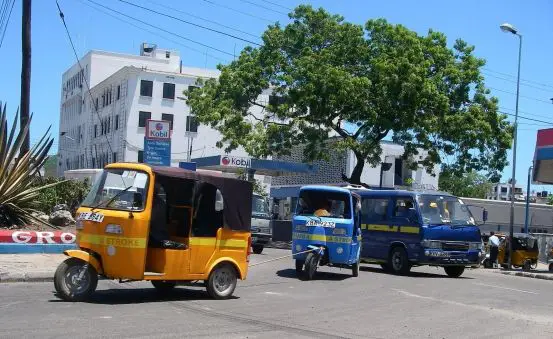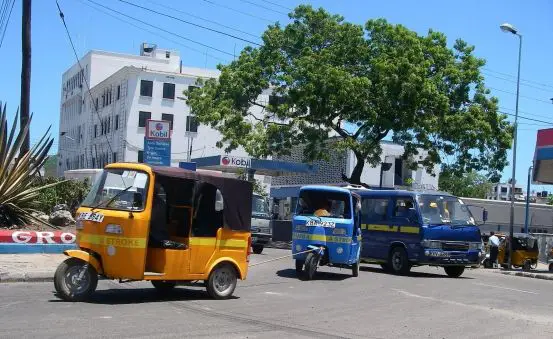Electric tuk-tuks in Coastal Kenya.
Tuk-tuk is a three-wheeler vehicle that is dominantly found in the coastal region of Kenya. There are over 15 startups in the sector that are in different stages to finalize their developments.


Tuk-tuk is a three-wheeler vehicle that is dominantly found in the coastal region of Kenya. There are over 15 startups in the sector that are in different stages to finalize their developments. These vehicles are mainly in Mombasa, Diani, Kilifi, Watamu, and Malindi. They are too noisy therefore having the electric version of the tuk-tuk will help reduce the noise in these areas.
Mombasa-based Solutions Africa was launched in December 2021. The company plans to fill the gap in the market and introduce electric 3-wheelers in the region. Solutions Africa imports completely knocked-down kits and then works with Associated Vehicle Assemblers (AVA) to assemble the vehicles in Mombasa. Kenya incentivizes the local assembly of vehicles imported as fully knocked-down kits by exempting them from import duties and taxes. Only VAT is applicable. Solutions Africa has taken advantage of this to ensure that its electric tuk-tuks will be competitive with the traditional ICE tuk-tuks in terms of the up-front purchase price.
It is preferable to have them assembled in the country than importing them when fully assembled hence being competitive with their ICE counterparts. To further ensure that its electric tuk-tuks are competitive price-wise, the first generation comes with lead-acid batteries. This was a strategic move to enter the market at close to parity with ICE equivalents, as lithium-ion versions would cost close to $2,000 to $3,000 dollars more. And in an industry with tight margins, operators would not be too keen to pay $2,000 more upfront. As the price of lithium-ion batteries improves, Solutions Africa is working to introduce versions with lithium-ion batteries. For now, the company assures customers that its lead acid batteries will last at least 3 years and it is also working with partners to have a battery upgrade program to lithium-ion once the current lead acid versions reach their end of life.
Solutions Africa owns, operates, and manages the fleet of electric tuk-tuks it introduced in Mombasa. Due to the weight and bulkiness of the lead acid batteries, Solutions Africa currently charges the tuk-tuks directly but is working on a battery swap model as well for when they introduce the lighter and easier-to-swap lithium-ion options. It takes between 6 to 8 hours to fully charge the lead acid batteries in the tuk-tuks.
Solutions Africa is also working with the key players in Kenya’s 2- and 3-wheeler financing sector to allow operators to get flexible payment terms and lower the barriers to adoption.




